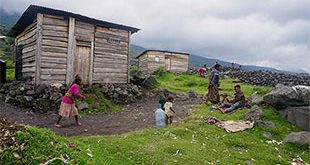
Nairobi, Kenya | Xinhua | Large-scale adoption of hydroponic and insect farming in Africa could be the answer to the continent’s hunger, poverty and ecological crisis, the World Bank said in a report launched in Nairobi on Wednesday.
The report titled “Insect and Hydroponic Farming in Africa: The New Circular Food Economy” notes that the two novel food production systems could thrive in a continent already battling water stress and declining arable land.
“As the report shows, insect and hydroponic farming can create jobs, diversify livelihoods, improve nutrition and provide many other benefits in African and fragile, conflict-affected countries,” said Juergen Voegele, vice president for sustainable development at the World Bank Group.
According to the report that was compiled from 13 African countries including those reeling from fragility and conflicts, insect and hydroponic farming could help tackle undernourishment that affects one in five people in the continent.
Currently, there are more than 850 insect farms that produce food and animal feed in Africa even as hydroponic farms spring up in arid lands to help grow staples amid severe water scarcity, according to the report.
It says that insect farming in the continent through the use of agricultural waste as feed could generate crude protein worth about 2.6 billion U.S. dollars and fertilizers worth about 19.4 billion dollars on an annual basis.
The report notes that insect farming could produce enough meals to meet up to 14 percent of the crude protein needed to rear all the pigs, goats, fish and poultry in Africa.
Globally, an estimated 2 billion people consume insects that are collected in the wild while more than 400 of the 2,100 species recognized as edible worldwide or 25 percent are consumed in Africa, according to the World Bank report.
It singles out black soldier fly farming as having the potential to replace 60 million tons of traditional feed production in Africa annually, leading to 200 million tons of recycled crop waste, 60 million tons of organic fertilizer production besides creating 15 million jobs.
Likewise, black soldier fly farming could also avert 86 million tons of carbon emissions in the continent, equivalent to removing 18 million vehicles from the roads.
Dorte Verner, World Bank lead agriculture economist and lead author of the report stressed that hydroponic and insect farming is key to boosting food and nutrition security besides delivering ecological benefits to Africa.
*****
Xinhua
 The Independent Uganda: You get the Truth we Pay the Price
The Independent Uganda: You get the Truth we Pay the Price


